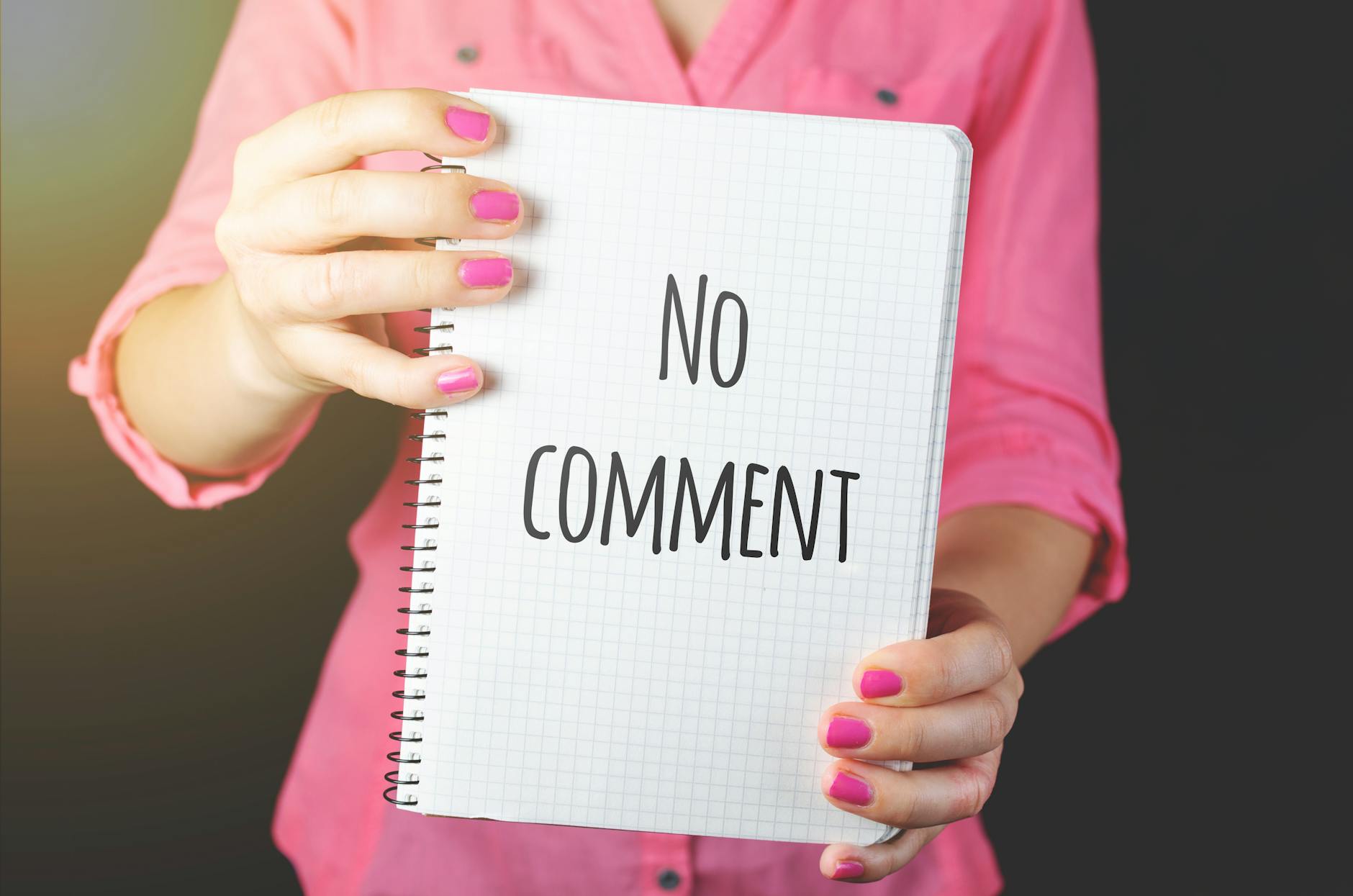This is my 40th year as a professional journalist. Over the years, I have worked for newspapers, wire services, and magazines as well as written two books, one of which was on the topic of journalism. I have learned many valuable lessons during that time due to personal experience and the advice of journalism professors, superiors and helpful colleagues. I have compiled the lessons into what I now call, ‘The 50 Rules of Good Journalism.’
I am publishing this list because it appears to these aging eyes that many journalists today resist following these rules, or anyone’s rules, for that matter. The thirst to be first often supersedes good judgment, as does the desire to express one’s personal and/or political views. (And I’m talking about both liberals and conservatives. I see violations of this basic rule from both sides every day.)
But I was taught that a journalist should be objective and professional, and that your private beliefs should be kept in check unless you are working as a columnist or commentator. I was also taught that it’s more important to be right than first.
Many journalists may find these rules quaint, or perhaps even condescending. But I hope that they read them, and at least, give them some consideration. I’m not saying they represent the last word in good journalism, but I do think they can provide some guidance in stressful and challenging moments.
So, here are the, ’50 Rules Of Good Journalism.’ — Phillip Swann
Journalism Rule #1
It may not be what you think it is. (And, it usually isn’t.)
 Journalism Rule #2
Journalism Rule #2
Actions speak louder than words. Don’t be swayed by what a public figure says, no matter how sincere and powerful the words may seem to be. Look at the person’s actions, both in public and private. That will give you the true measure of the individual and his or her plans.
Journalism Rule #3
You’re writing for your readers. Not yourself. Not your friends. Not your colleagues.
Journalism Rule #4
Don’t use just one anonymous source for a story unless he or she has documentation that can be verified. Otherwise, you must have at least two independent sources.
Journalism Rule #5
Don’t hype a story because you think it will generate more page views, or increase your influence in your newsroom. Readers will see right through it and your credibility will be diminished.
 Journalism Rule #6
Journalism Rule #6
Write something every day, even if it’s not for publication. The muscles need to be exercised.
Journalism Rule #7
Never use the word, reportedly, without mentioning who did that reporting. Your readers deserve to know the original source of your story, and the reporters who did the original reporting deserve to be noted.
Journalism Rule #8
Never report a story because it ‘sounds right.’ Verify that it is right before publishing.
Journalism Rule #9
There’s always another side to the story, no matter how wrong it may seem to you. Your readers deserve to hear it.
Journalism Rule #10
Trust your readers to see the truth.
Journalism Rule #11
Don’t say on social media what you wouldn’t feel comfortable saying in print or on the air. Your reputation and credibility are always at stake.
Journalism Rule #12
Never be afraid of asking a ‘stupid’ question. There are no stupid questions when you are trying to learn more about your subject. Only truly stupid people will criticize you for asking a question.
Journalism Rule #13
Your first sentence is always the most important one you will write, particularly if most readers are not familiar with your work. Hold their attention as soon as possible.
Journalism Rule #14
Always tell your readers the exact number of anonymous sources you are basing your story on. For example, if there are only two, say that. Your readers deserve to know how strong your sourcing is. Don’t just say, ‘according to sources.’
 Journalism Rule #15
Journalism Rule #15
Read everyday, preferably someone who’s a better writer than you are. You will learn something without even realizing it.
Journalism Rule #16
You’re a journalist, not an advocate. Your job is to bring pertinent information to your readers, not attempt to persuade them to support a cause.
Journalism Rule #17
You should remain as objective as possible. You are a pro and should cover the story with as little emotion as possible.
Journalism Rule #18
Never want a story so much that your heart overrules your head. If you do, you will make mistakes. Stay cool and focused, and be prepared to walk away if you don’t have the story.
Journalism Rule #19
When pursuing a big story – or any story – don’t be afraid of asking for help. The goal is to get the story, even if that means you share the credit.
Journalism Rule #20
Never write a story based on someone else’s original reporting without crediting the original story.
Journalism Rule #21
Never be afraid to ask a question even if you think the subject will refuse to answer, or give an evasive response. You never know for sure so ask.
Journalism Rule #22
Always be prepared to report the news regardless of your location or circumstances. That means always carry a device that can capture photos and/or video of an unexpected event. That means always have the ability to communicate with your editors/readers.
Journalism Rule #23
Only write the facts you have, not the facts you wish you had, or what you THINK the facts could be with more reporting.
 Journalism Rule #24
Journalism Rule #24
Don’t cover a story just because everyone else is covering it. In fact, if everyone else is covering it, you probably don’t want to. Take the road less traveled. There’s more to find there.
Journalism Rule #25
Every allegation of improper behavior by an individual should be verified before you publish it – even if others previously made similar allegations towards that individual. Each allegation is different and should be treated as such.
Journalism Rule #26
Pick up a dictionary and read a few random pages at least once a week. You will be surprised at how many new words and definitions you will learn and later use in your writing.
Journalism Rule #27
If you write a story under the label, Analysis, that doesn’t mean you have a license to express your political or personal view. That’s what columns are for. An analysis is supposed to give your readers more context to an important story.
Journalism Rule #28
Avoid jargon, particularly words and catch-phrases that are in vogue with your fellow journalists. Ask yourself: Will your readers understand this word? If there’s any doubt, don’t use it.
Journalism Rule #29
Don’t be in a hurry to be a niche/special interest reporter. The more general knowledge you accumulate, the better and deeper your niche reporting will be if you eventually choose to do that.
Journalism Rule #30
Never publish the results of a poll or research study without first challenging and verifying the methodology. Many polls and studies are purposely skewed to further a marketing and/or political objective.
 Journalism Rule #31
Journalism Rule #31
Never withhold pertinent information while covering a political campaign because it might benefit you, or your organization, financially or politically. Your readers’ (voters) need to know should always supersede those aims.
Journalism Rule #32
Keep your notebooks, and any other device you use to collect information. You never know when you might need to refer back to your old notes as a story develops, perhaps even years later.
Journalism Rule #33
It’s easy to fall into the ‘echo chamber’ where journalists repeat the same opinions and statements. So try to avoid using the same people as ‘expert authorities’ in your stories. Give your readers a wide selection of voices.
Journalism Rule #34
Never write a company will do something in the future. Say it plans to do something. Quite often, companies change course and wind up never doing what they say they will do. Your readers deserve to know it’s not a guarantee until it actually happens.
Journalism Rule #35
Never assume your readers will understand what you are trying to say. Acronyms should be spelled out on the first reference. Technical and/or industry terms should explained.
Journalism Rule #36
The term, ‘false equivalency,’ is sometimes used to justify presenting a single viewpoint. But you should always present both sides – with proper context, if necessary – and allow your readers to draw their own conclusions.
Journalism Rule #37
Headlines should reflect the facts and flavor of the story. Never write (hype) a headline that promises more than the story delivers. It will alienate your readers and diminish your credibility.
Journalism Rule #38
All departments and organizations should adhere to the same rules. For example, the standards should not be lower for sports and entertainment reporters even if their subject matter is perceived by some to be of lesser importance.
Journalism Rule #39
Do not accept payments, or gifts above $50 in value, from any organization or person that you do report on or MIGHT report on in the future. All potential conflicts of interest must be avoided. They will hurt your credibility and damage your reputation.
Journalism Rule #40
Never allow the drive to be first to force you to publish a story before it’s been verified. The thrill of being first will never beat the thrill of being right.
Journalism Rule #41
Don’t share a news report found on social media until it’s been verified by yourself, or a reputable news organization. Spreading false rumors can cause serious damage to your credibility, and possibly, cause physical and/or psychological damage to others.
 Journalism Rule #42
Journalism Rule #42
A comment is not off-the-record unless the person asked to go off the record prior to the remark and you agreed to that request. Otherwise, you are free to use the comment as you see fit.
Journalism Rule #43
You can be friendly with someone you report on, but you can never be their friend. Don’t socialize with them. Don’t participate in their endeavors no matter how innocent it may seem. Appearances matter.
Journalism Rule #44
The standards of sharing information and/or reporting information should be no different on social media than it would be for print or on the air. Don’t lower your standards because of any pressure to boost your social media standing.
Journalism Rule #45
Adjectives: Never use two when one will precisely define the subject. And never use one when none is needed. This particularly true for descriptions of political philosophies. If someone is a conservative, he/she is not a right-wing conservative.
Journalism Rule #46
Do not post or share a fake April Fool’s Day story on social media. While once a lighthearted tradition, you no longer have the luxury to engage in such a practice due to the rise of fake news items spread throughout the year. Your credibility is at stake.
Journalism Rule #47
Sometimes you exhibit your best journalistic judgment when you decide NOT to write a story. Don’t feel like you have to write about something just because everyone else is writing about it.
Journalism Rule #48
Never make up anything in your article, even if you think it will advance the narrative or further the characterization of your subject. Your readers deserve facts, and facts alone.
Journalism Rule #49
Always be skeptical of a company statistic if the company won’t allow an outside party to verify it.
 Journalism Rule #50
Journalism Rule #50
Work hard, but always find time to expand your talents and interests outside your job. You must strive to achieve balance in life or you’ll eventually burn out and make mistakes. A refreshed reporter is always better than a tired one.
Photo credit: Free photos from Pexels.com.


Geez, too many rules, you expect journalists to remember all of them? LOL
As a reader I appreciate no. 25 bout verifying improper behavior, and no. 30 about polls..
AMEN Brother!